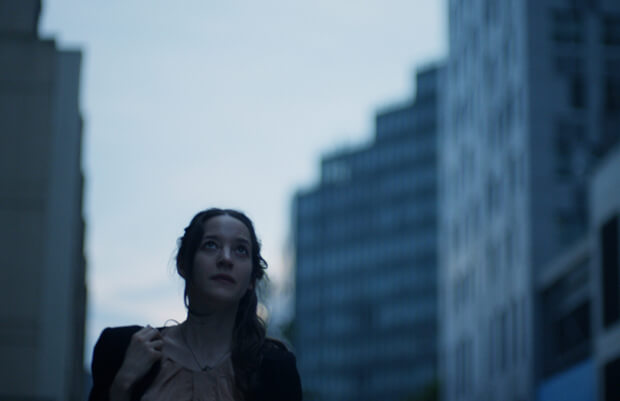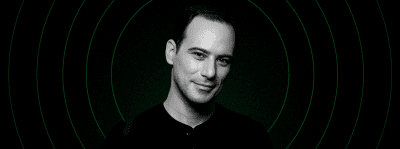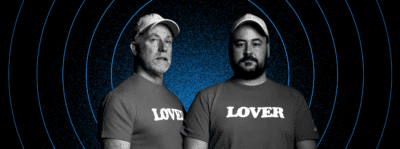Professional Intimacy: Talking to She’s Lost Control Director Anja Marquardt
She’s Lost Control, the hypnotizing, New York-set debut feature from Lower East Side-based filmmaker Anja Marquardt, examines our contemporary relationship to intimacy through the unlikely avenue of a sex surrogate. Embodying that enviable cocktail of alienation and intrigue, Brooke Bloom stars as Ronah, the psych student cum surrogate in question, who happens to be in dire need of her own interpersonal counseling. Exacerbating matters is her new patient Johnny (Marc Menchaca), whose aggressive insularity pulls Ronah in over her head and beyond her professional boundaries. Following its run at Berlinale, SXSW, New Directors and several in between, She’s Lost Control screens at Rooftop Films in Sunset Park tonight.
She’s Lost Control is an off-kilter character study insofar as Ronah is defined in contrast to almost everything around her. She is a sex surrogate, albeit one with her own intimacy issues. Though she extols relationship advice, she seems incapable of maintaining a functioning one herself. What came first, Ronah or her environs? Did you know you wanted to make a movie about a sex surrogate or explore a dichotomous character?
It really all came from the notion that there is—in our modern, urban lives—a kind of professional intimacy. One that might feel like the real deal but ultimately isn’t, and might make it even harder to return to one’s personal life and seek out real intimacy. Or love. The surrogate version of it has become more readily available, easier to navigate, and maybe just as satisfying—on the surface. But deep down, something’s getting lost. Maybe we don’t trust our instincts as much as we used to.
So, the idea of Ronah was there, first. She’s an extreme version of someone who practices professional intimacy. She sleeps with her clients. The rest of it, her surroundings, came as I started to interview real surrogate partners. I have to say, though, that the people I spoke with are far more “normal” and well adjusted. Ronah is a fictional character.
I kind of hate to ask about influences because they can be fickle, but did you have any particular touchstones in building the narrative and visual look of the film?
Klute, Alan J. Pakula. It’s such a strong film with such a strong lead performance. A lot of long-lens shots, the city as a protagonist. That was definitely an influence. In terms of the narrative, though, I never set out to make a film about the struggles of a female sex worker. I mean, I guess you could say that that’s what She’s Lost Control is about, but not really. Looking at New York life all around me, it often feels like we’re in a post-gender era.
Other visual influences are pretty eclectic and if I list them here it probably won’t seem like there’s an obvious connection. Walkabout, The Tenant, Young Adam, Upstream Color. It’s more of a mood thing. Zack Galler [the director of photography] and I decided early on that we’d go with natural light whenever possible. There’s something classic and contained about his compositions, but there’s a tension underneath. We looked at photography, paintings. I particularly remember stumbling upon Neil Goldberg’s exhibit, “Stories the City Tells Itself.”


On a practical level I was looking for someone who was game to do this. I mean, there’s full nudity in the script (and there was a fair amount of it on set, much more than in the final film). None of my short films have any nudity in them, so I suppose it required a lot of trust from the actors (Brooke, but also her male counterparts). The core idea of this film was always to make a naturalistic yet edgy film about intimacy, showing intimacy on screen. It was never about the nudity.
Brooke understood that from the very beginning. She and I talked very little about the sex scenes and a lot about Ronah, how to make her the patient. Brooke brings a tremendous amount of warmth, vulnerability, strength, and also some darkness to the character. In writing Ronah, that’s what I had always envisioned. Ronah is conflicted; she’s very aware, but also quite good at ignoring parts of herself. Allison Twardziak [the casting director] and I looked at a lot of very talented actresses. This film could have gone in a number of different directions, all dependent on the lead, because she’s in every scene. Finding Brooke was a coincidence, and I feel I kinda lucked out. We ended up pushing the shoot for six months to wait for her.
How did you go about controlling the somewhat stilted rapport between Brooke Bloom and the actors who played her patients? What was different about the rehearsal process?
There were no rehearsals! I mean, it seemed like the whole point about their encounters was a built-in awkwardness, a “sniffing each other out.” Every film has its own trajectory, but for She’s Lost Control it seemed like doing rehearsals could have sabotaged the mission. Instead, we got together and talked about life. And Facebook.
I read that initially you toyed with the idea of making a sci-fi film, which is interesting because I think Ronah’s trajectory follows the path of the supernatural heroine. Her power over men is ultimately undone by human emotion, not unlike Scarlett Johansson’s character in Under the Skin, for a recent example. Why did you abandon the genre?
Ah, interesting comparison. There’s also another parallel with Under the Skin, regarding the ending (but I won’t spoil that here). To me, Ronah still is a somewhat supernatural heroine. She could be the girl next door, but beneath it all, there’s something alien about her. In one early draft of the script, the last scene is a reveal—Ronah is really a robot, not a human being.
Why did I abandon it? It’s hard to say in hindsight, but ultimately it felt like I had one shot at making this film within a certain budget, and VFX wasn’t really part of that. On a story level, I wanted to have Ronah go home in the end. Back to the core. It’s more of a human trajectory. But the connection between man and machine is something I ponder a lot.
The color palette also gives the film a paranormal feel at times. We’re clearly in Manhattan, but it’s a Manhattan that feels alien, very drab with lots of grays and muted colors. How did you work with your DP and production designer to bring out the isolation in the cityscape?
It was really a very intuitive and incredibly rewarding collaboration between Zack Galler, David Meyer (Production Design), and Andrea Sundt (Costume Design). We had a certain color palette in mind but ended up shooting in July—lots of greens and neon colors—and having that muted color approach gave way to an interesting counterintuitive MO. We ended up incorporating a lot of windows and walls as part of the cityscape, to underline the idea of Ronah’s isolation whenever she’s not with her clients.
In making a film that’s about a somewhat clandestine, taboo profession, did you feel a certain degree of responsibility to convey it faithfully?
Yes, absolutely. That’s a given. We just had a screening in Jerusalem—many therapists in the audience, a lot of profound questions at the Q&A—and the fact that they came up to me afterwards and don’t feel I somehow screwed this up means a lot. I enjoy the research part. It’s one of the great luxuries of being a filmmaker. On a story level, given that this is a somewhat clandestine profession, it seemed like the more authentic and matter-of-fact it could be presented, the more leeway there would be to push the story over the edge.
Lastly, what’s next?
Nothing’s set in stone yet, but I’m back in writing mode. There’s an original script I’m very excited about, it’s a thriller set in the world of plant forensics. There’s also an original story I’m adapting and another, smaller project I might shoot early next year. And then, fingers crossed, we’ll have a release of She’s Lost Control coming up in the not too distant future.
You might also like 




















